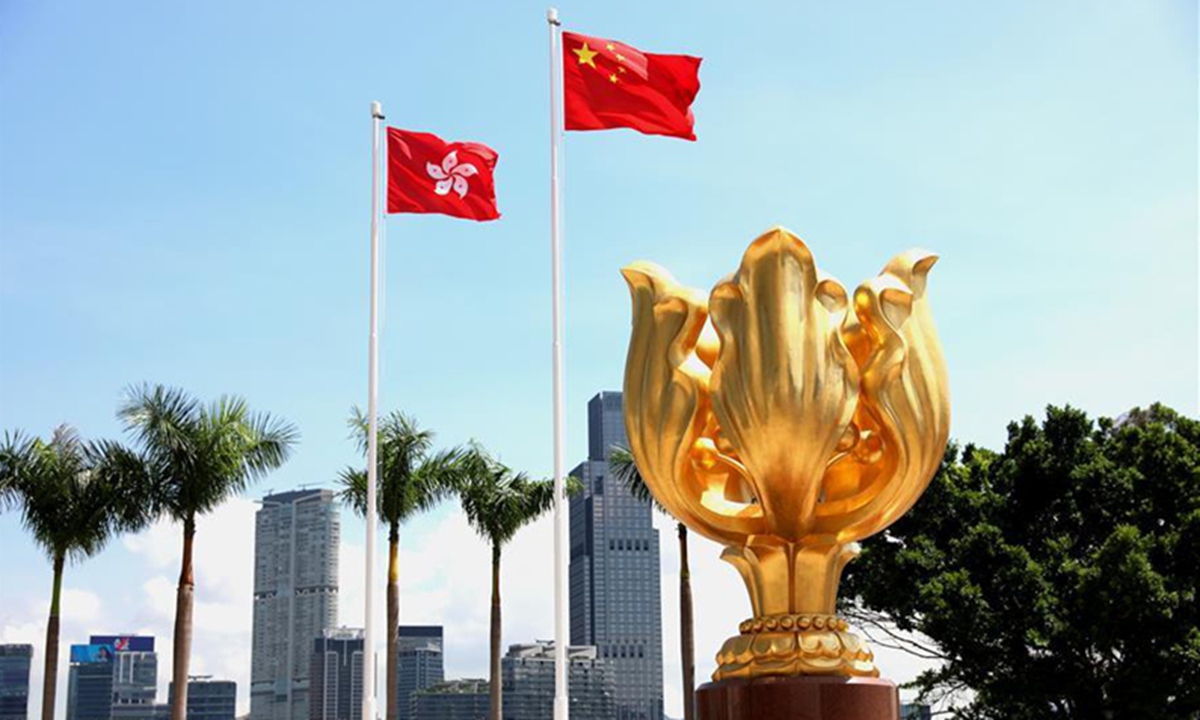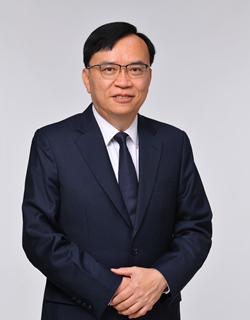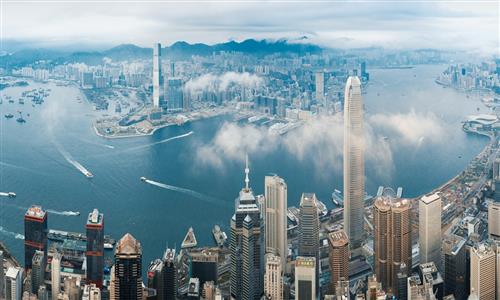Exclusive: Chinese mainland, HKSAR to deepen cooperation to create more new growth drivers: national political advisor from HK

Hong Kong file photo
The economy in the Hong Kong Special Administrative Region (HKSAR) is recovering and growing, and it's expected to continue expanding this year, as the region further taps its role as a "super connector" between the Chinese mainland and the world, and as the integration of the Guangdong-Hong Kong-Macao Greater Bay Area (GBA) further gears up, Kingsley Wong Kwok, a member of the National Committee of the Chinese People's Political Consultative Conference and a member of the Hong Kong Legislative Council, told the Global Times on Wednesday.
A Chinese mainland GDP growth rate of about 5 percent for 2024 would also help elevate the HKSAR economy, Wong said, while highlighting new growth drivers in the mainland economy, which he believed could provide new insights into Hong Kong's development. Wong is also the chairman of the Hong Kong Federation of Trade Unions.
"We saw the rapid rise of the 'new three,' or electric vehicles, lithium-ion batteries, and solar cells in the Chinese mainland market. Now, more Hong Kong residents are purchasing electric vehicles produced by Chinese mainland automakers.
"We have also been impressed by the manufacturing prowess of the home-developed C919, which visited Hong Kong in recent days," Wong said. He added that the Chinese mainland and the HKSAR could cooperate further to create more rising futuristic sectors.
With regard to Hong Kong's allure, Wong said that the city has great attractions for international talent and capital as an international center.
In recent months, Hong Kong has seen an increasing foreign talent influx under its leading talent admission program. Since its launch one year ago, the program has attracted almost 70,000 applications, with nearly 79 percent being approved, the South China Morning Post reported in February.
"If multinationals and global capital look to make inroads into the Chinese mainland, they could first establish a base in Hong Kong as a bridgehead," Wong explained, noting that this is the HKSAR's unique advantage stemming from the "One Country, Two Systems" policy.
In 2019, Chinese authorities unveiled the outline development plan for the GBA, aiming to develop the region into "a role model of high-quality development." According to Wong, significant progress has been made in the area's development in recent years, and he expected the integration to further gain steam.
According to a proposal Wong shared with the Global Times, he suggested expanding the scope of HKSAR re-entry permits for use in the mainland, including in such areas as banking applications, transportation, travel, payments and entertainment.
"As more Hongkongers travel to the GBA to spend their weekends, the expansion will facilitate more people-to-people exchanges, and draw more Hong Kong young people to live and work in the mainland," he noted.
In 2023, there were more than 50 million visits to the mainland by Hong Kong residents, according to media reports.
As a member of the Hong Kong Legislative Council, Wong also noted that the Council is fully promoting the legislation involving Article 23 of the Basic Law of the HKSAR.
"We have started a series of legal review work and hope to complete the legislation as soon as possible, so that we could focus more on boosting the economy and improving people's livelihoods," Wong said. He stressed that national security lays the foundation for Hong Kong's social and economic development.

Kingsley Wong Kwok, a member of the National Committee of the Chinese People's Political Consultative Conference and a member of the Hong Kong Legislative Council Photo: Courtesy of Kingsley Wong Kwok


